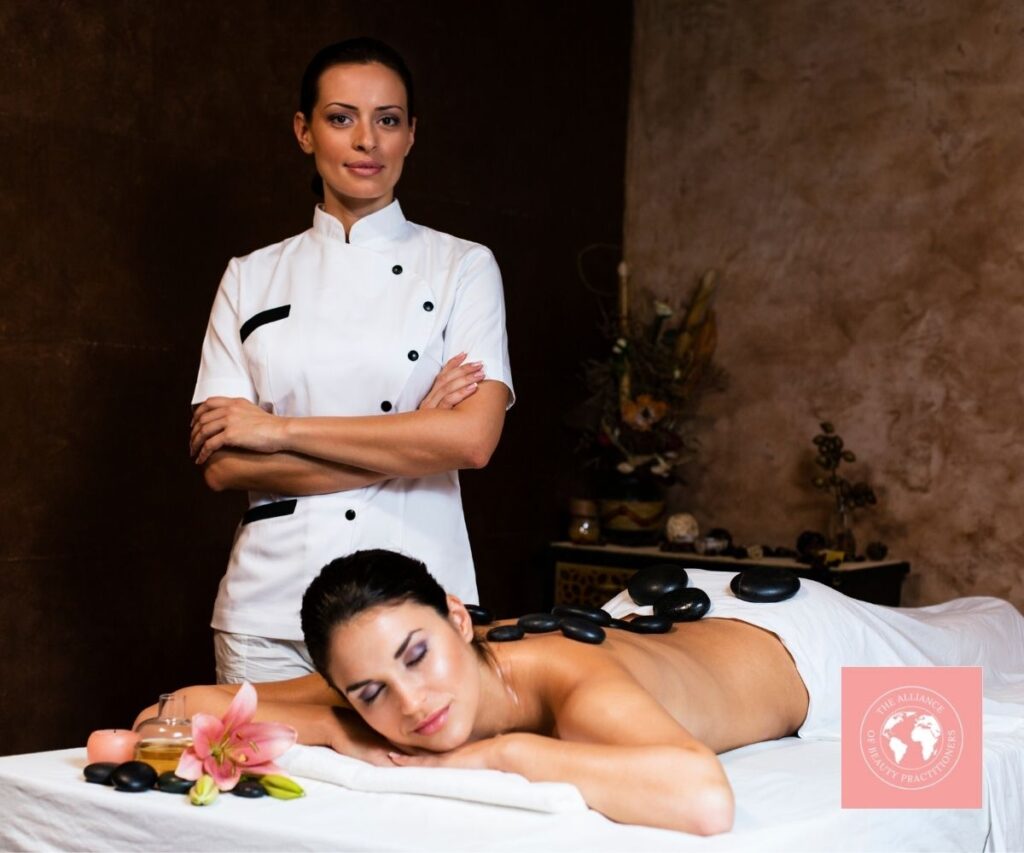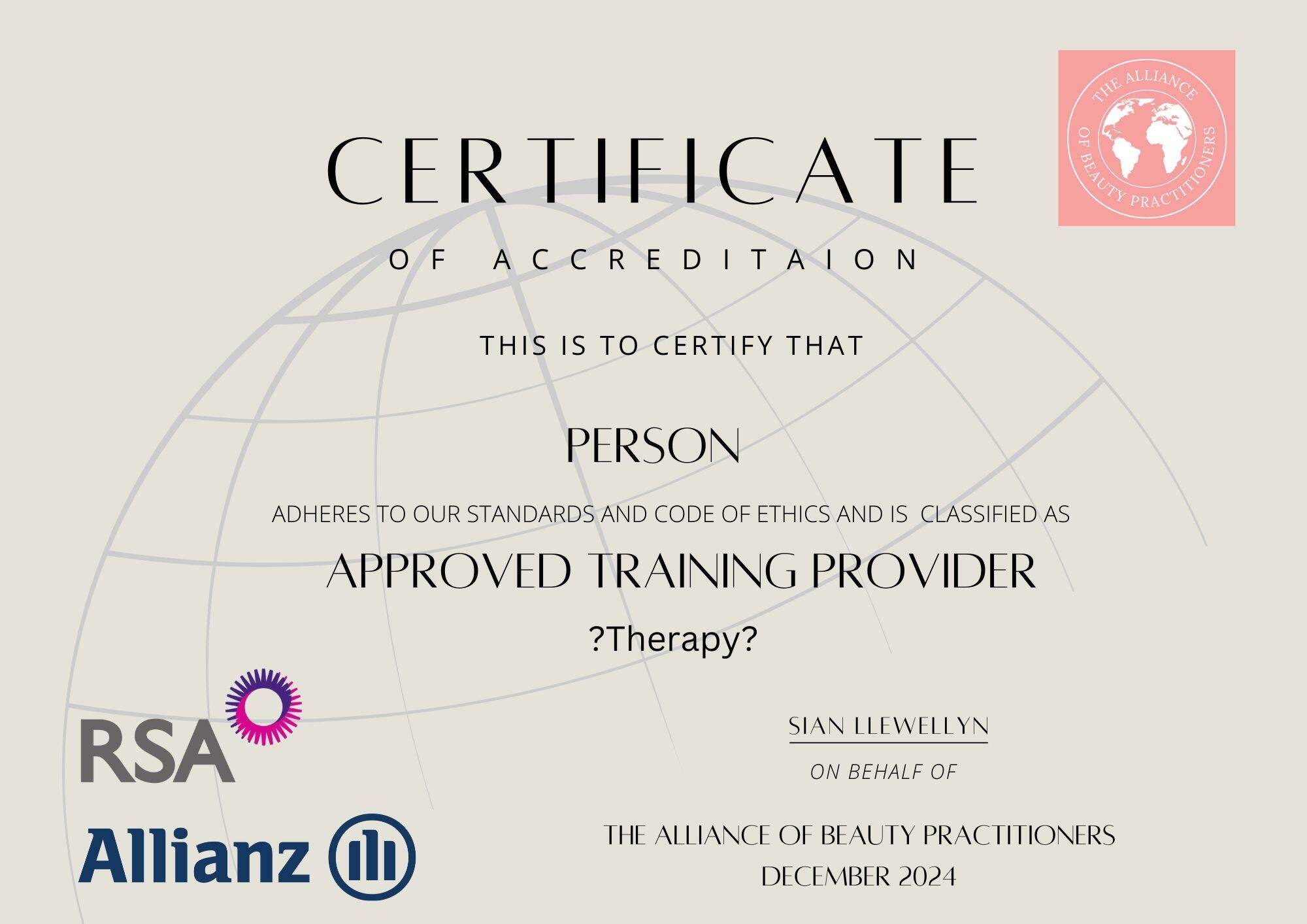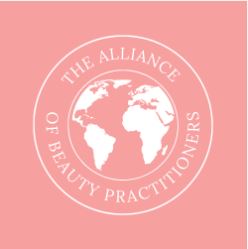Your basket is currently empty!

Accredited Beauty Training Courses in the UK: Insights
Table of Contents
The beauty industry in the UK is flourishing, with an ever-growing demand for skilled professionals. Indeed, the British Beauty Council reported in August 2024, that the industry had grown by 11% in 2023. Whether you’re just starting out or you’re a seasoned beauty therapist looking to expand your expertise, training is a critical component of your success. But with so many beauty training courses on the market, how do you ensure you’re investing in the right one? The answer lies in accredited beauty training courses, here are our insights.
Why Accredited Beauty Training Courses Matter
Accreditation is more than just a stamp of approval; it’s a guarantee of quality, professionalism, and adherence to industry standards. Unfortunately, the beauty training landscape is rife with courses that lack proper accreditation. While these non-accredited courses may appear cheaper or more accessible, they pose significant risks to both practitioners and to the industry as a whole.

Risks of Non-Accredited Beauty Training Courses
For beauty therapists, completing non-accredited courses can mean:
• Limited career opportunities:
Many employers and insurers require qualifications from accredited providers. Without accreditation, therapists may struggle to find work or obtain the necessary insurance to practice.
• Reduced customer confidence:
Clients want to know they’re in safe, skilled hands. Knowing their therapist has completed an accredited course gives them peace of mind.
• Inconsistent skills and knowledge:
Non-accredited beauty training courses may not adhere to industry standards, leaving gaps in a therapist’s education.
• Damage to the industry’s reputation:
Unregulated training can lead to inconsistent standards, putting the safety and trust of customers at risk.
Accreditation is not just a box to tick; it’s a foundation for long-term success and credibility. For the beauty industry to continue thriving, ensuring practitioners are fully qualified is essential.
Aspiring Trainers: Accreditation is Vital
If you’re a beauty therapist ready to take your career to the next level by teaching, creating accredited courses is non-negotiable. Offering accredited beauty training courses not only enhances your credibility but also ensures your students receive the highest quality training. It’s a way of giving back to the industry while upholding its standards and professionalism.

Benefits of Creating Accredited Beauty Training Courses
• Enhanced Credibility:
Accreditation demonstrates that you meet rigorous industry standards.
• Increased Marketability:
Students are more likely to choose your courses over non-accredited options.
• Positive Impact on the Industry:
By offering high-quality training, you contribute to a safer and more professional beauty sector.
• Better Student Outcomes:
Students trained in accredited programs are more confident and competent in their skills, benefiting their future careers.
The Role of The Alliance of Beauty Practitioners
For those seeking accreditation, look no further than The Alliance of Beauty Practitioners (ABP). Our organisation, is run by highly experienced professionals, offering an accreditation service that stands out for its integrity and dedication. Here’s what makes ABP unique:
• Charitable Status:
Operating as a non-profit organisation in association with Foundation14a, the ABP is driven by a mission to regulate the beauty industry and protect its reputation.
• Industry Passion:
The ABP is committed to ensuring all beauty therapists are fully qualified and trained to the highest standards, safeguarding clients and supporting practitioners.
• Comprehensive Accreditation Process:
The ABP’s process ensures that your courses meet stringent quality criteria, helping you stand out in a crowded market.
Why Choose ABP Accreditation?
The ABP’s accreditation process is thorough and designed to uphold high standards. Here’s a general outline of what to expect:
1. Initial Application:
Trainers submit their course details, including curriculum, assessments, and teaching methods.
2. Evaluation:
ABP’s experts review the course materials to ensure they align with industry standards.
3. Feedback and Adjustments:
If needed, trainers receive constructive feedback to refine their courses.
4. Approval:
Once the course meets all requirements, it is officially accredited.
5. Ongoing Support:
The ABP provides continued guidance to ensure trainers maintain high standards.
Building Confidence and Trust in Beauty
In a world where beauty treatments are increasingly popular, trust and safety are paramount. Accredited beauty training courses ensure that practitioners meet high standards of competence and professionalism, creating a ripple effect of confidence among clients. As a beauty therapist or trainer, you have the power to uphold these standards by prioritising accredited training for yourself and others.
Client Perspective: Why Accredited Beauty Training Courses Matter
Clients are becoming more informed and discerning when it comes to beauty treatments. They want to know that their therapist has received proper training and that their safety is a top priority. When you display qualifications from accredited courses, you’re sending a clear message: “I’m committed to excellence.”
This trust is invaluable, leading to repeat business, positive reviews, and referrals. In a competitive industry, accreditation can be the difference between a thriving business and one that struggles to gain traction.
The Bigger Picture: Regulating the Industry
The beauty industry’s rapid growth brings both opportunities and challenges. Without proper regulation, there’s a risk of unqualified individuals offering treatments that could harm clients and damage the industry’s reputation. This is where organisations like The Alliance of Beauty Practitioners play a crucial role.
By setting high standards and offering accreditation, the ABP helps ensure that only qualified professionals enter the field. This regulation benefits everyone:
• Clients: They receive safe, high-quality treatments.
• Therapists: They gain credibility and confidence in their skills.
• The Industry: A regulated sector is more respected and trusted, leading to sustained growth.
How to Get Started
If you’re ready to elevate your career or expand your business by offering accredited beauty training courses, The Alliance of Beauty Practitioners is here to help. Start by visiting our website to learn more about our accreditation process and requirements. Whether you’re a new trainer or an established professional, ABP’s team of experts will guide you every step of the way.

Accredited Beauty Training Courses
‘Include theory, practical skills, and assessments’.
Tips for Aspiring Trainers
1. Research Your Niche:
Focus on areas of beauty therapy where you excel and that are in demand.
2. Invest in Your Education:
Ensure your own qualifications are up-to-date and from accredited providers.
3. Design a Comprehensive Curriculum:
Include theory, practical skills, and assessments.
4. Seek Feedback:
Test your course with a small group and make improvements based on their input.
5. Partner with ABP:
Our accreditation will add credibility and professionalism to your courses.
Accredited Beauty Training Courses : Final Thoughts
The beauty industry is vibrant and rewarding, but it’s also one that relies on trust and expertise. By choosing accredited beauty training courses or seeking accreditation for the courses you design, you contribute to a safer, more professional industry. With the support of organisations like The Alliance of Beauty Practitioners, we can collectively elevate the standards and reputation of beauty therapy in the UK.
Invest in accreditation today and join a community of professionals dedicated to excellence. Together, we can ensure the beauty industry remains a trusted and thriving field for years to come.
